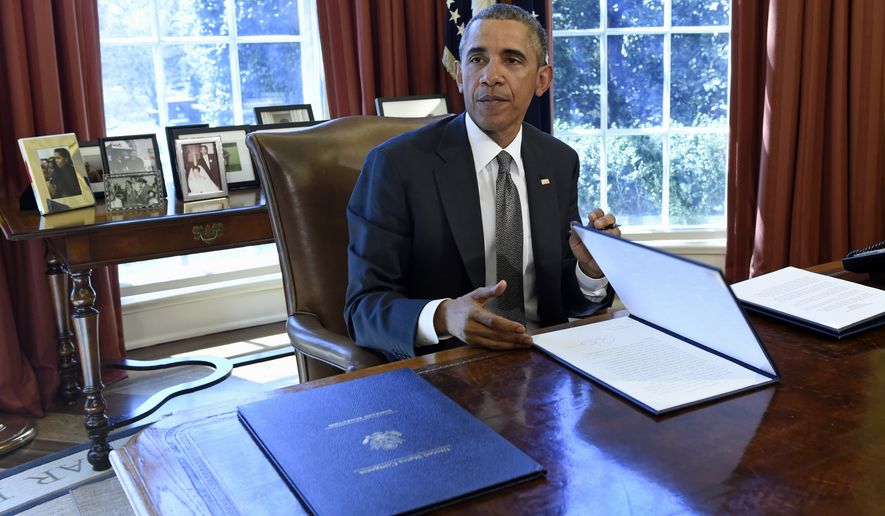OPINION:
When the NLRB chairman claimed in a press release that the agency’s controversial new election procedures would give “businesses and workers a process they deserve that is effective, fair, and free of unnecessary delays,” the devils in hell must have blushed. The Board’s new “Ambush Election” rule has nothing to do with fairness. It was adopted to limit, if not eviscerate, an employer’s protected speech on the issue of unionization before an election and to stack the deck in favor of a union outcome.
The rule rewrites the Board’s election procedures to shorten the time for a Board election from a median of 38 days with 94% of all elections taking place within 56 days—a time-line considered “remarkable” by the first Obama-appointed Acting General Counsel—to only 13 days.
Although preventing “unnecessary delay” is the principal reason for the rule, the Board does not examine the relatively few elections that have taken too long and the reasons why. Instead, it slashes time from all pre-election procedures and orders that all elections take place “at the earliest date practicable.”
The Board bobs and weaves indecorously with half-truths to explain why the rule provides no time for a debate on the most important workplace decision an employee is likely to make.
For example, the Board informs the public that the “current [now former] rules and regulations do not set forth any such time periods [either].” The former rules did not set aside a specific time for a pre-election campaign, but they allowed time for one. For example, 25–30 days was provided between the order for an election and the election. Claiming that “[t]his delay served little purpose,” the Board summarily removes it, well aware that it gave the parties and the employees time to debate the issues.
And to address the argument that it is interfering with protected employer speech, the Board responds that it does not “change any rules regarding speech,” while failing to acknowledge that it does everything it can to limit the time within which that speech can occur.
The NLRB is controlled by committed members of a labor movement threatened by a continuing loss in union membership. They sincerely believe that unionization is the only avenue available for workers to achieve equal dignity and respect and are determined to turn the decline around.
Union decline in the private sector is the result of a combination of political, social, and economic factors—mostly beyond their control, but Big Labor and movement members ignore that reality and claim that the cause of the decline is intensified employer opposition.
That claim is the unstated reason for the Ambush Election rule, and it is indefensible for two reasons. First, lawful employer opposition benefits the workplace by allowing for a more informed electorate, and it is expressly protected by law that contemplates an “uninhibited, robust and wide-open” debate on labor issues.
If the employer steps over the line, the same law authorizes the Board to set the election aside. Second, the research Big Labor consistently relies on to support its claim of increased unlawful employer opposition is dubious at best—specifically on unreliable anecdotal evidence and unproven allegations of misconduct.
For example, Professor Kate Bronfenbrenner’s conclusions are based on interviews of 562 union agents. Not surprisingly, her conclusions are inconsistent with the Board’s statistics, which show a significant drop in employer unfair labor practices since 1980.
The Board denies that the rule’s goal is to curtail employers’ protected speech. “[T]he dissent acknowledges—as it must—that the final rule expressly disclaims any such purpose.” Translation: It is so because we say it is so.
But the day has long past when representations of the Obama NLRB can be taken at face value. The second reason given by the Board demonstrates why.
According to the Board, just because some commentators—”someone, somewhere”—claim that silencing the employer is the reason for the rule, that does not make it so. But in fact, two commentators are among the principal authors of the Ambush Election rule—former Board members Craig Becker and Nancy Schiffer—both have forcefully advocated for eliminating the employer from the election process, claiming that employer participation intimidates employees and denies them free choice. Before he was named to the Board, Becker pushed for changes in the Board’s election procedures to achieve that very result.
If the courts look beneath the surface of the Board’s justifications for the Ambush Election rule, they will not be deceived, and the rule will be denied enforcement in whole or in part. This outcome is in the interests of workplace democracy and the nation as a whole.
Peter Schaumber was a former Chairman of the NLRB appointed by President George W. Bush.




Please read our comment policy before commenting.